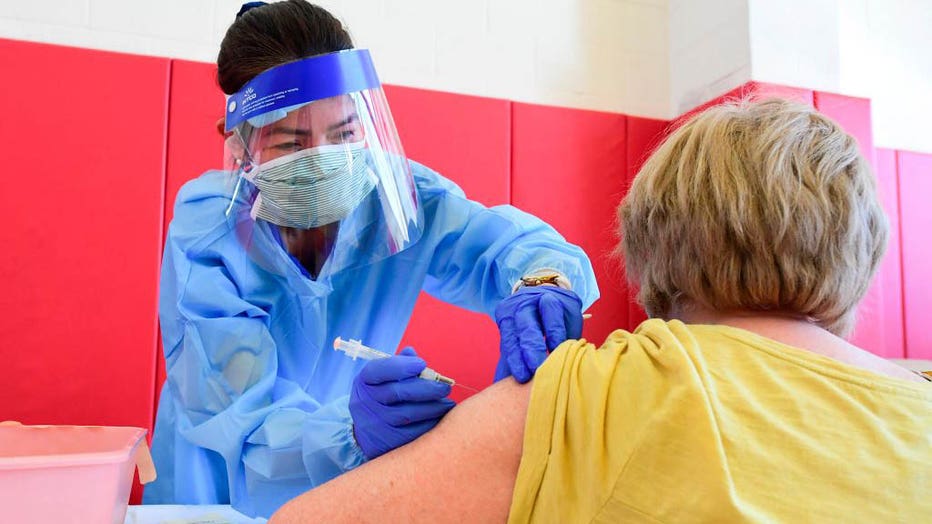After COVID-19 vaccination, is it safe to visit with friends and loved ones?
As more of the population receives a COVID-19 vaccine, many are understandably wondering when it will be safe to visit with friends and relatives once again. Experts say it’s important for the vaccinated to still take safety precautions, as more research is needed to fully understand how well the shots prevent the spread of the virus.
Research has shown that current vaccines are effective at keeping people from getting sick with COVID-19. For those who do get COVID-19, experts also think that the vaccines may help keep people from getting seriously ill, according to the U.S. Centers for Disease Control and Prevention.
Both Pfizer-BioNTech and Moderna report that their two-dose vaccines given at the appropriate intervals show approximately 94%-95% efficacy at preventing both mild and severe symptoms of COVID-19.
RELATED: COVID-19 vaccines: More side effects reported after 2nd dose, but experts say there’s a reason
So while the COVID-19 vaccines are effective at keeping people from displaying symptoms, researchers are still learning how well the shots prevent individuals from spreading SARS-COV-2, the virus that causes COVID-19, to others.
In other words, someone vaccinated against COVID-19 could still be exposed to the virus, potentially becoming infected with or "carrying" SARS-COV-2 but without symptoms. They could still pass it on to an unvaccinated person — who in turn could develop COVID-19.
But the extent to which vaccinated people could be spreaders of the virus remains unclear — which is why public health experts have stressed the need to continue safety precautions, such as wearing a mask and avoiding crowds, until case levels drop amid the ongoing vaccination effort.
RELATED: These 3 COVID-19 vaccine side effects are common, CDC expert says
Dr. Anthony Fauci, the government’s top infectious disease expert, recently weighed in on the question of whether fully vaccinated people — namely grandparents — can safely visit with their children and grandchildren once again.
Fauci told NBC’s "Today" show that if members of a family are all vaccinated, getting together poses much less risk. But if just one member is vaccinated and others aren't, "then you gotta be careful."
"Grandma could still get virus in her nasopharynx, even though the vaccine is preventing her from getting physically ill. She still could have virus in her nasopharynx," Fauci warned. "Until we have the overwhelming majority of people vaccinated, and the level of virus is very low. When you're vaccinated, it would be prudent to wear a mask."

FILE - A nurse administers the COVID-19 vaccine into the arm of a senior citizen at Corona High School in Corona, California on Jan. 15, 2021. (Photo by FREDERIC J. BROWN/AFP via Getty Images)
Additionally, after any vaccination, it takes time for the body to build up protection. The CDC says COVID-19 vaccines that require two shots may not protect until a week or two after the second dose.
RELATED: Fauci predicts 'open season' by April for everyone to start getting COVID-19 vaccines
The U.S. now is administering an average of about 1.67 million doses per day, according to the CDC. At the same time, deaths are down over the past six weeks, and new cases have plummeted.
The overall U.S. death toll from the virus has hit nearly 490,000 people, data from Johns Hopkins shows.
Nearly 38.3 million Americans, or close to 12% of the U.S. population, have received at least one dose of the vaccine, and 14 million have received both shots, the CDC said.
Deaths are running at about 2,400 per day on average, down by more than 900 from their peak in mid-January. And the average number of new cases per day has dropped to about 85,000, the lowest in more than three months. That's down from a peak of almost a quarter-million per day in early January.
This story was reported from Cincinnati. The Associated Press contributed.


